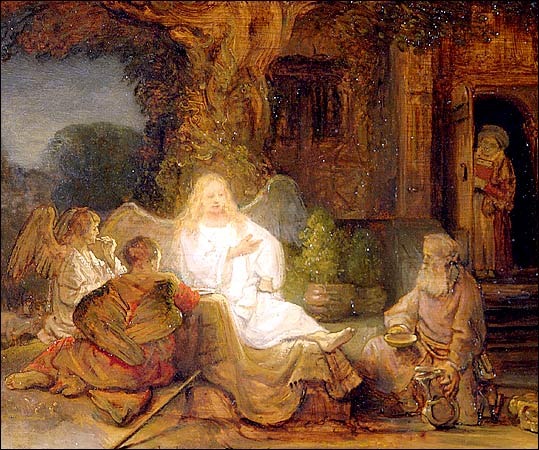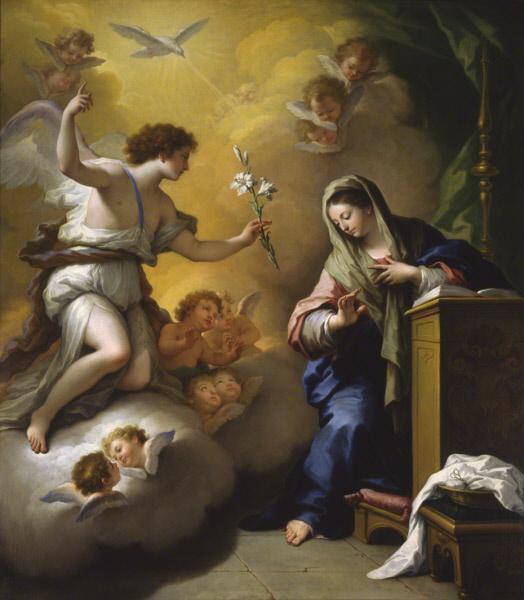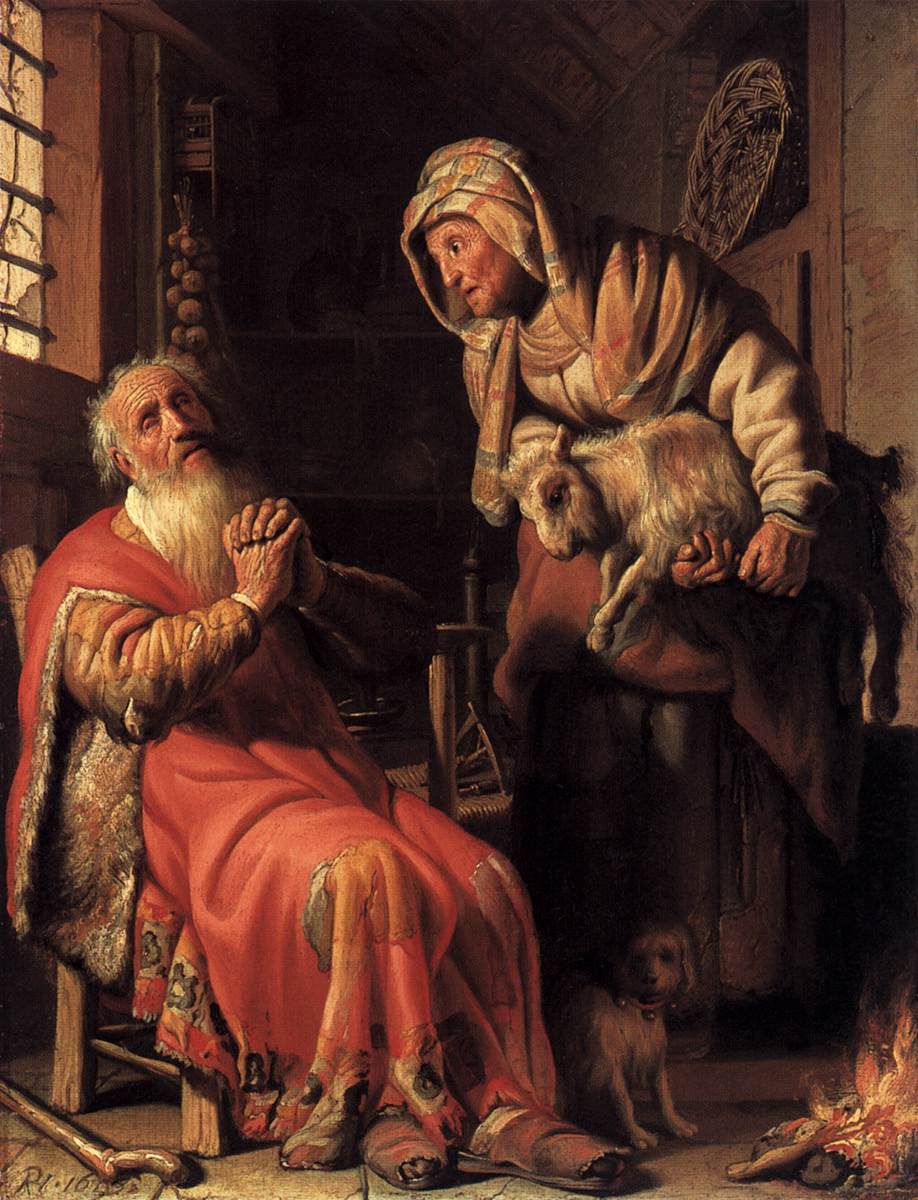|
Human Guise
A human disguise (also human guise and sometimes human form) is a concept in fantasy, folklore, mythology, religion, literature, iconography, and science fiction whereby non-human beings such as gods, angels, monsters, extraterrestrials, or robots are disguised to seem human. Stories have depicted the deception as a means used to blend in with people, and science fiction has used the dichotomy to raise questions about what it means to be human. In religion, mythology, and folklore In pagan religions, deities very often took on the form of a human disguise for various tasks. The gods "of whom the minstrels sang" in Homer's Iliad watched the "human spectacle" as partisans, and came down to Earth invisible or in human disguise to interfere, sometimes to protect their favorites from harm (compare ''deus ex machina''). Their human disguises sometimes extended to their getting hurt in conflicts. Zeus's human disguises have been compared to Plato's use of communicating through alternate ... [...More Info...] [...Related Items...] OR: [Wikipedia] [Google] [Baidu] |
Ruby Blondell
Ruby Blondell is Professor of Classics, Adjunct Professor of Gender, Women, & Sexuality Studies, and Byron W. and Alice L. Lockwood Professor of Humanities at the University of Washington. Their research and teaching centres on Greek intellectual history, gender studies, and the reception of ancient myth in contemporary culture. Career Blondell completed their BA and MA in Classics at the University of Oxford (1978 and 1981, respectively), before receiving their PhD from the University of California, Berkeley in 1984. Their doctoral thesis was entitled ''Helping Friends and Harming Enemies: A Study in Sophocles and Greek Ethics''. Upon the completion of their PhD, Blondell was a lecturer at Harvard University, before moving to the University of Washington in 1985, where they have taught ever since. Their current teaching responsibilities are centred on topics of Greek literature (especially Greek tragedy), and Greek intellectual history and culture. Blondell has held various po ... [...More Info...] [...Related Items...] OR: [Wikipedia] [Google] [Baidu] |
Lot (Bible)
Lot (; he, לוֹט ''Lōṭ'', lit. "veil" or "covering"; gr, Λώτ ''Lṓt''; ar, لُوط ''Lūṭ''; Syriac: ܠܘܛ ''Lōṭ'') was a man in the biblical Book of Genesis, chapters 11–14 and 19. Notable events in his life include his journey with his uncle Abram (Abraham); his flight from the destruction of Sodom and Gomorrah, during which Lot's wife became a pillar of salt; and his being intoxicated by his daughters so that they could have sexual intercourse with him and ensure their family would have descendants. Biblical account According to the Hebrew Bible, Lot was born to Haran, who died in Ur of the Chaldees. Terah, Lot's grandfather, took Abram (later called Abraham), Lot, and Sarai (later called Sarah) to go into Canaan. They settled at the site called Haran where Terah died. As a part of the covenant of the pieces, God told Abram to leave his country and his kindred. Abram's nephew Lot joined him on his journey and they went into the land of Canaan, settl ... [...More Info...] [...Related Items...] OR: [Wikipedia] [Google] [Baidu] |
The Forward
''The Forward'' ( yi, פֿאָרווערטס, Forverts), formerly known as ''The Jewish Daily Forward'', is an American news media organization for a Jewish American audience. Founded in 1897 as a Yiddish-language daily socialist newspaper, ''The New York Times'' reported that Seth Lipsky "started an English-language offshoot of the Yiddish-language newspaper" as a weekly newspaper in 1990. In the 21st century ''The Forward'' is a digital publication with online reporting. In 2016, the publication of the Yiddish version changed its print format from a biweekly newspaper to a monthly magazine; the English weekly paper followed suit in 2017. Those magazines were published until 2019. ''The Forward''s perspective on world and national news and its reporting on the Jewish perspective on modern United States have made it one of the most influential American Jewish publications. It is published by an independent nonprofit association. It has a politically progressive editorial f ... [...More Info...] [...Related Items...] OR: [Wikipedia] [Google] [Baidu] |
Bible (World English)/Genesis
The Bible (from Koine Greek , , 'the books') is a collection of religious texts or scriptures that are held to be sacred in Christianity, Judaism, Samaritanism, and many other religions. The Bible is an anthologya compilation of texts of a variety of forms originally written in Hebrew, Aramaic, and Koine Greek. These texts include instructions, stories, poetry, and prophecies, among other genres. The collection of materials that are accepted as part of the Bible by a particular religious tradition or community is called a biblical canon. Believers in the Bible generally consider it to be a product of divine inspiration, but the way they understand what that means and interpret the text can vary. The religious texts were compiled by different religious communities into various official collections. The earliest contained the first five books of the Bible. It is called the Torah in Hebrew and the Pentateuch (meaning ''five books'') in Greek; the second oldest part was a coll ... [...More Info...] [...Related Items...] OR: [Wikipedia] [Google] [Baidu] |
Abraham
Abraham, ; ar, , , name=, group= (originally Abram) is the common Hebrew patriarch of the Abrahamic religions, including Judaism, Christianity, and Islam. In Judaism, he is the founding father of the special relationship between the Jews and God; in Christianity, he is the spiritual progenitor of all believers, whether Jewish or non-Jewish; and in Islam, he is a link in the chain of Islamic prophets that begins with Adam (see Adam in Islam) and culminates in Muhammad. His life, told in the narrative of the Book of Genesis, revolves around the themes of posterity and land. Abraham is called by God to leave the house of his father Terah and settle in the land of Canaan, which God now promises to Abraham and his progeny. This promise is subsequently inherited by Isaac, Abraham's son by his wife Sarah, while Isaac's half-brother Ishmael is also promised that he will be the founder of a great nation. Abraham purchases a tomb (the Cave of the Patriarchs) at Hebro ... [...More Info...] [...Related Items...] OR: [Wikipedia] [Google] [Baidu] |
Book Of Genesis
The Book of Genesis (from Greek ; Hebrew: בְּרֵאשִׁית ''Bəreʾšīt'', "In hebeginning") is the first book of the Hebrew Bible and the Christian Old Testament. Its Hebrew name is the same as its first word, ( "In the beginning"). Genesis is an account of the creation of the world, the early history of humanity, and of Israel's ancestors and the origins of the Jewish people. Tradition credits Moses as the author of Genesis, as well as the books of Exodus, Leviticus, Numbers and most of Deuteronomy; however, modern scholars, especially from the 19th century onward, place the books' authorship in the 6th and 5th centuries BC, hundreds of years after Moses is supposed to have lived.Davies (1998), p. 37 Based on scientific interpretation of archaeological, genetic, and linguistic evidence, most scholars consider Genesis to be primarily mythological rather than historical. It is divisible into two parts, the primeval history (chapters 1–11) and the anc ... [...More Info...] [...Related Items...] OR: [Wikipedia] [Google] [Baidu] |
Raphael (angel)
Raphael (, "God has healed"), ''Rəfāʾēl'', Tiberian: ''Răp̄āʾēl''; lit. 'God has healed'; grc, Ραφαήλ, ''Raphaḗl''; cop, ⲣⲁⲫⲁⲏⲗ, ''Rafaêl''; ar, رافائيل, ''Rāfā’īl'', or , ''Isrāfīl''; am, ሩፋኤል, ''Rufaʾel''. is an archangel first mentioned in the Book of Tobit and in 1 Enoch, both estimated to date from between the 3rd and 2nd century BCE. In later Jewish tradition, he became identified as one of the three heavenly visitors entertained by Abraham at the Oak of Mamre. He is not named in either the New Testament or the Quran, but later Christian tradition identified him with healing and as the angel who stirred waters in the Pool of Bethesda in John 5:2–4, and in Islam, where his name is Israfil, he is understood to be the unnamed angel of Quran 6:73, standing eternally with a trumpet to his lips, ready to announce the Day of Judgment. In Gnostic tradition, Raphael is represented on the Ophite Diagram. Origins in pos ... [...More Info...] [...Related Items...] OR: [Wikipedia] [Google] [Baidu] |
Archangel
Archangels () are the second lowest rank of angel in the hierarchy of angels. The word ''archangel'' itself is usually associated with the Abrahamic religions, but beings that are very similar to archangels are found in a number of other religious traditions. Archangels also appear in the religious texts of Gnosticism. The English word ''archangel'' is derived from Greek ἀρχάγγελος (arkhángelos), the Greek prefix "arch-" meaning "chief". A common misconception is that archangels are the highest rank of angel, this misconception stems from John Milton's ''Paradise Lost'' and likely confusion over the "arch-" prefix. Description Michael and Gabriel are recognized as archangels in Judaism, Islam, and by most Christians. Some Protestants consider Michael to be the only archangel. Raphael—mentioned in the deuterocanonical Book of Tobit—is also recognized as a chief angel in the Catholic and Eastern Orthodox churches. Gabriel, Michael, and Raphael are venerated in ... [...More Info...] [...Related Items...] OR: [Wikipedia] [Google] [Baidu] |
Book Of Tobit
The Book of Tobit () ''Tōbith'' or ''Tōbit'' ( and spellings are also attested) itself from he, טובי ''Tovi'' "my good"; Book of Tobias in the Vulgate from the Greek ''Tōbias'', itself from the Hebrew ''Tovyah'' "Yah is good", also known as the Book of Tobias or the Book of Tobi, is a 3rd or early 2nd century BC Jewish work describing how God tests the faithful, responds to prayers, and protects the covenant community (i.e., the Israelites). It tells the story of two Israelite families, that of the blind Tobit in Nineveh and of the abandoned Sarah in Ecbatana. Tobit's son Tobias is sent to retrieve ten silver talents that Tobit once left in Rages, a town in Media; guided and aided by the angel Raphael he arrives in Ecbatana, where he meets Sarah. A demon named Asmodeus has fallen in love with her and kills anyone she intends to marry, but with the aid of Raphael the demon is exorcised and Tobias and Sarah marry, after which they return to Nineveh where Tobit is cu ... [...More Info...] [...Related Items...] OR: [Wikipedia] [Google] [Baidu] |
Old Testament
The Old Testament (often abbreviated OT) is the first division of the Christian biblical canon, which is based primarily upon the 24 books of the Hebrew Bible or Tanakh, a collection of ancient religious Hebrew writings by the Israelites. The second division of Christian Bibles is the New Testament, written in the Koine Greek language. The Old Testament consists of many distinct books by various authors produced over a period of centuries. Christians traditionally divide the Old Testament into four sections: the first five books or Pentateuch (corresponds to the Jewish Torah); the history books telling the history of the Israelites, from their conquest of Canaan to their defeat and exile in Babylon; the poetic and " Wisdom books" dealing, in various forms, with questions of good and evil in the world; and the books of the biblical prophets, warning of the consequences of turning away from God. The books that compose the Old Testament canon and their order and names differ b ... [...More Info...] [...Related Items...] OR: [Wikipedia] [Google] [Baidu] |
Torah
The Torah (; hbo, ''Tōrā'', "Instruction", "Teaching" or "Law") is the compilation of the first five books of the Hebrew Bible, namely the books of Genesis, Exodus, Leviticus, Numbers and Deuteronomy. In that sense, Torah means the same as Pentateuch or the Five Books of Moses. It is also known in the Jewish tradition as the Written Torah (, ). If meant for liturgic purposes, it takes the form of a Torah scroll ('' Sefer Torah''). If in bound book form, it is called ''Chumash'', and is usually printed with the rabbinic commentaries (). At times, however, the word ''Torah'' can also be used as a synonym for the whole of the Hebrew Bible or Tanakh, in which sense it includes not only the first five, but all 24 books of the Hebrew Bible. Finally, Torah can even mean the totality of Jewish teaching, culture, and practice, whether derived from biblical texts or later rabbinic writings. The latter is often known as the Oral Torah. Representing the core of the Jewish spi ... [...More Info...] [...Related Items...] OR: [Wikipedia] [Google] [Baidu] |

.jpg)

.jpg)
.jpg)



